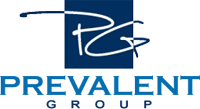Job seekers looking to take their careers to the next level must tailor their resumes accordingly. Junior-level and middle-management positions require significantly different skill sets than senior-level positions. Upper managers must exhibit leadership skills and be able to showcase their ability to get results. Therefore, in order to transition and apply for senior-level jobs, candidates must build a performance-based resume that not only paints a picture of technical success, but one that also shows a history of strong leadership.
Here are some tips for making the transition:
Think like a senior leader:
Before you can take the next step in your career, you must change your mindset. In your current position, begin to think like a leader. Can you volunteer to head up new projects? What steps can you personally take to improve the performance of your entire team? If you think like a senior manager, it can have a positive effect not only on your job search, but your performance as well.
Identify your most valuable skill sets:
What makes you a successful leader? Do you take the reins without asking? Perhaps you are able to quickly take projects in a new direction without pushing back against leadership. Do you find that your team comes to you with questions about specific skills? Identify your strengths and be sure they are highlighted on your resume.
Don’t tell, show:
A resume should not be a laundry list of job titles, responsibilities, and awards. You must sell yourself through specific examples. Don’t simply say you led a team. Instead, cite examples of the steps you took to improve specific team metrics or the processes you implemented to exceed company goals.
Be open to new possibilities:
If you’ve only ever worked at a large corporation, open yourself up to positions at smaller companies where there are more opportunities to wear different hats and take on advanced projects.
Partner with a recruiter:
Making the transition to senior management can be a challenge for some candidates. If you find yourself stuck, it can be valuable to partner with a professional recruiter who can work with you directly to help you modify your resume, and who can coach you on how to interview for senior positions. Recruiters also have a line on jobs that may not be advertised to the public, and they can match you with positions and organizations that align with your unique strengths and goals.
If you are looking to take the next step in your career, we’d love to talk to you. At
The Prevalent Group we are always seeking relationships with experienced professionals who have the skills and the ability to deliver results. As a nationally recognized
management and executive placement recruitment company, we place executives in sales, marketing, engineering, technology and more. If you are looking for new opportunities in these fields, visit our
job board to scan our current openings, and then
contact us to learn more. We look forward to connecting you with your next job.
